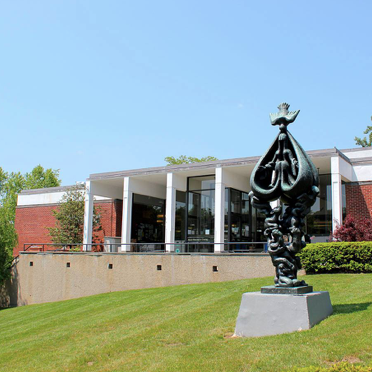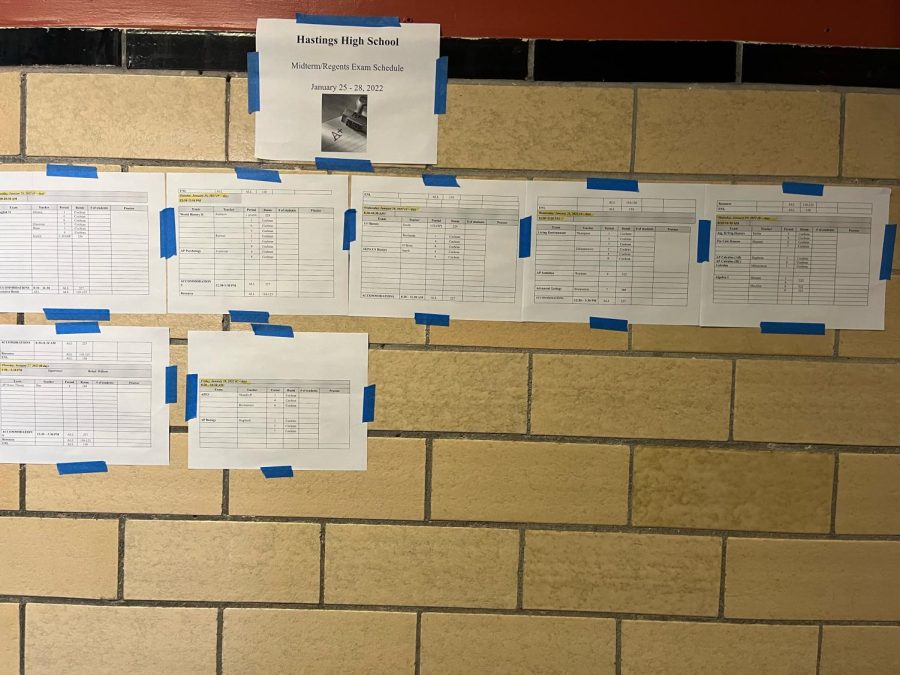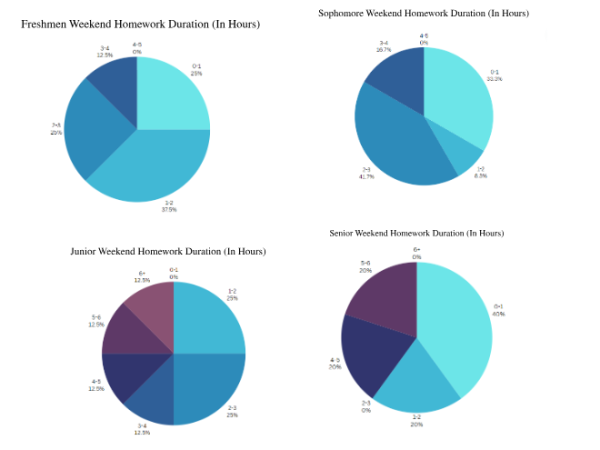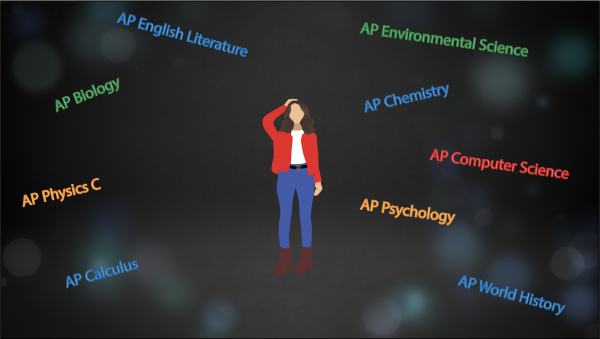Bringing Back Midterms: Behind the Decision
February 17, 2022
After taking a pause during the 2021 school year, midterms were back this year with seventeen tests taking place during the last week in January.
As principal, Mr. Adipietro has always been vocal about his feelings towards midterms and other standardized tests, and is “not a fan of mid-year testing and larger assessments in general.” However, due to Regents becoming a more likely possibility for students this year, Mr. Adipietro decided to allow teachers to run midterms as they had done prior to the Covid-19 pandemic.
“I wanted the teachers to give [students] some exposure to Regents-like questions, so they [would] have an idea of what junior year holds.” Most underclassmen had never experienced a midterm week, so he felt this would be an important experience, especially for those students who may go on to take exams like the SATs in junior year.
He mentioned that he and the faculty had an agreement that “the tests would be reduced from three hours to two hours and would focus on Regents courses and upper level honors or AP classes.” This was done in an effort to minimize the amount of tests students would take and to hopefully lower stress levels.
The maximum number of tests students could have was higher for the upperclassmen. Most freshmen had one to two tests and most sophomores had two to three tests. Juniors and seniors, on the other hand, could have had up to seven tests, depending on their classes. However, this was not a likely scenario as it would involve having a schedule with an unusual combination of electives and Regents/AP classes. The Math Department offered seven midterms, the most out of any department. The History and Science Departments both had four midterms. Additionally, English and Music Theory both had one.
The History Department “gave more midterms than usual” and one of the factors in their decision, according to Mr. Smith, was that “ninth and tenth graders have never sat for a Regents exam, ever.” Ms. Shandroff, the head of the Science Department, said in her department, “each class decided for themselves if they were going to have a midterm” and these decisions were largely based on if classes had an AP or Regents exam at the end of the course. Ms. Shandroff also discussed how grading over midterms can “give an idea of who needs help, who may be struggling” and the midterms gave her a chance to “recommend a student come see [her] if they are struggling.”
All of the teachers I talked with, even if their department gave no midterm, mentioned how they understood the importance of testing, especially for upperclassmen to prepare for testing in college.
The World Language Department decided to give midterms, but Ms. Paz brought up how testing in language classes is often different from testing in most other subjects. The World Language Department uses a lot of performance based tests throughout the year. Ms. Paz said that “over time we have felt that midterms were not as necessary because we test [using different methods] every class.”
From speaking with students, the general consensus was that the midterms were stressful because of how close the tests were to each other and the fact that they could affect your quarter average.
However, Bella Muskin, a freshman, mentioned that there was a beneficial side to midterms, in that it was a “refresher of what we have learned [in class].” That said, she agreed with the majority of students that the stress of midterms can outweigh the benefits.
Dr. Stephens, the head of the Math Department, said that midterms and other similar tests “ask students how well [they] can move between the right now stuff we are just learning and the way that it fits together in the larger tapestry of knowledge.”
With that said, he still sees how cumulative testing can be extremely difficult for students, which is why some math classes are specifically designed to have the units disconnected, as opposed to cumulative, to eliminate the need for an accumulation of knowledge.
































